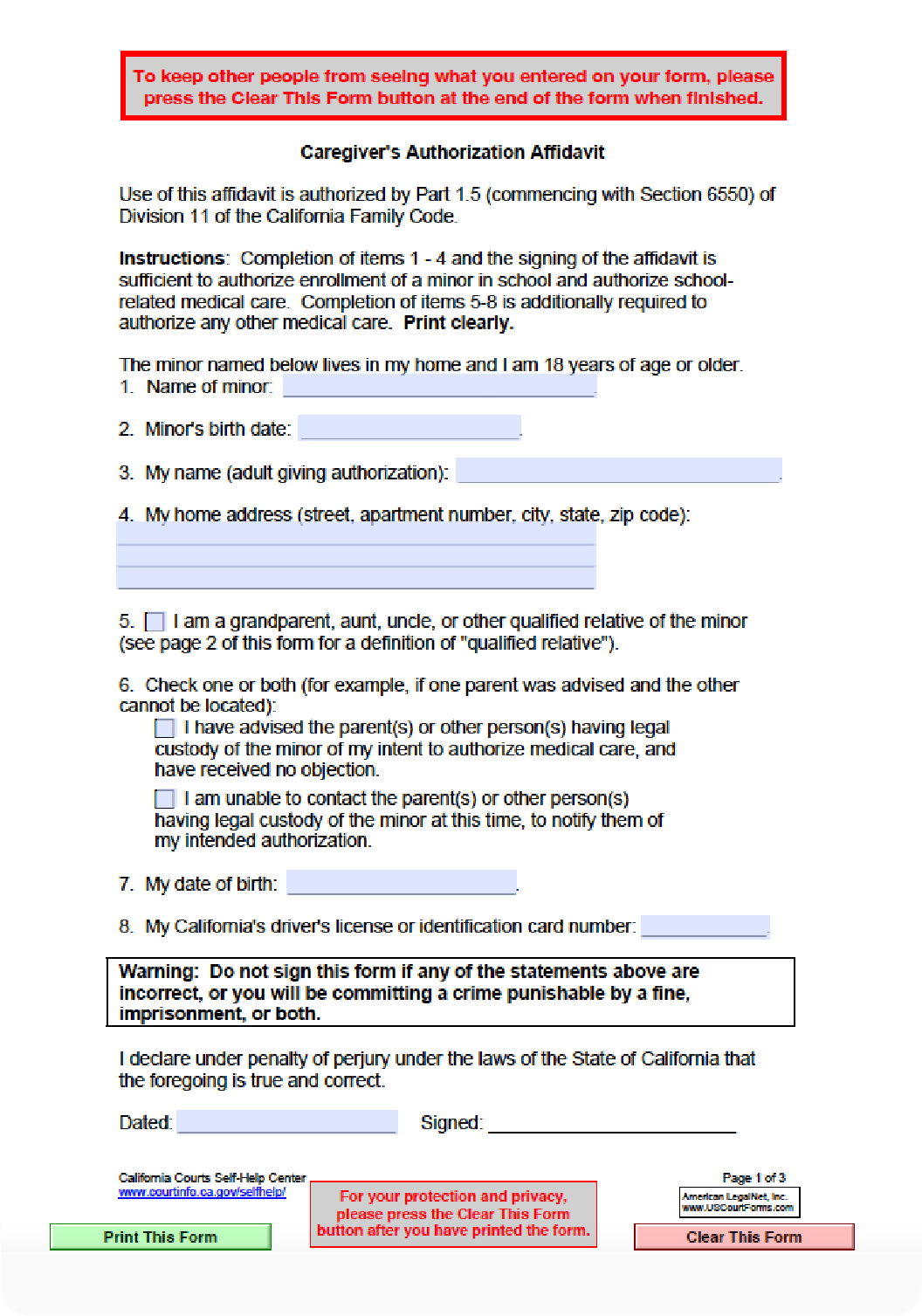Family Preparedness
Creating a Family Preparedness Plan helps ensure that children and loved ones are safe and cared for if a family member is detained or deported. It provides clear instructions about finances, housing, and caregiving so important decisions are not left uncertain during a crisis.
Having a plan brings peace of mind and protects families from unnecessary hardship during difficult times.
You call SALEF direct at
213-480-1052 to register for upcoming workshops to help you create a plan.
1. Consult with an Immigration Attorney
Consult with an immigration attorney as early as possible to learn about your immigration options. An attorney can review your situation, explain what immigration remedies may be available, and help you prepare in case you are ever arrested or detained. Knowing your legal options ahead of time can make a big difference for you and your family.
2. What If I have Children Who Are U.S. Citizens?
If family separation happens due to deportation, it is important to have a family preparedness plan in place. U.S. Citizen children cannot be deported, but they may face difficult situations if their parent or caregiver is removed.
Families should identify a trusted adult who can care for the children, complete legal documents such as a caregiver’s authorization affidavit or guardianship papers, and make sure important records (birth certificates, medical records, school information) are gathered in advance. Having these steps in place helps ensure children remain safe, stable, and supported if separation occurs.
3. Important Documents Need in Case of Family Separation Due to Deportation
It is important to gather and organize key documents to protect your family in the event of separation. These documents make it easier for a trusted caregiver, attorney, or service provider to step in and support your children and household if needed.
These include but are not limited to:
![]() Identification Documents:
Identification Documents:
Passports, birth certificates, consular IDs, green cards, work permits, driver’s licenses.
![]() Children’s Records:
Children’s Records:
Birth certificates, passports, Social Security cards, school enrollment records, report cards, medical and vaccination records.
![]() Immigration Documents:
Immigration Documents:
Copies of any immigration filings, A-number, Notice to Appear, work authorization cards, or pending applications.
![]() Financial Records:
Financial Records:
Bank account information, pay stubs, tax returns, credit cards, property deeds, rental agreements, utility bills.
![]() Legal Documents: Caregiver’s authorization affidavits, guardianship paperwork, powers of attorney, custody agreements.
Legal Documents: Caregiver’s authorization affidavits, guardianship paperwork, powers of attorney, custody agreements.
![]() Emergency Contacts: Names, phone numbers, and addresses of trusted relatives, friends, schools, doctors, and attorneys.
Emergency Contacts: Names, phone numbers, and addresses of trusted relatives, friends, schools, doctors, and attorneys.
Tip: Keep originals in a safe place and make copies to share with your trusted caregiver and attorney.
4. What is the California Caregiver’s Authorization Affidavit
The Caregiver’s Authorization Affidavit is a simple form in California that allows parents to give a trusted relative (such as a grandparent, aunt, or uncle) the legal authority to care for their child if the parent is not available.
Why it’s important:
-
- Lets the caregiver enroll the child in school
- Allows the caregiver to consent to medical treatment
- Helps children stay safe, stable, and cared for without going through the courts
- The caregiver must be a qualified relative who lives with the child.
- The form does not give full custody it is temporary authority to meet the child’s daily needs.
- It is especially important for families at risk of detention or deportation to complete this form in advance.
Tip: Keep the completed affidavit with your family’s important documents and give a copy to the caregiver, school, and doctor.
Click Here for More Information and Download Caregiver’s Authorization Affidavit
5. Who is a Qualified Relative?
A qualified relative can use Caregiver’s Affidavit to enroll the child in school and consent to medical and dental treatment for the child, as well as mental health support.
-
- Adult sibling (half sibling, step sibling included)
- Grandparent
- Aunt or uncle
- Niece or nephew
- First cousin
- Great grandparent, great aunt/uncle
- Stepparent
- Spouse
6. What is Emergency Guardianship in California?
Emergency guardianship is a short-term legal arrangement in California where the court appoints someone (a guardian) to immediately care for a child when the parents are unable to do so. It is designed to protect the child in urgent situations, such as when a parent is detained, deported, hospitalized, or otherwise unavailable.
-
- A judge must approve an emergency (temporary) guardianship.
- It gives the guardian legal authority to make decisions about the child’s care, housing, education, and medical needs.
- Emergency guardianships are usually granted quickly but are temporary. They often last until the court decides on a longer-term solution (like permanent guardianship or the parent’s return).
- Unlike a Caregiver’s Authorization Affidavit (which parents can fill out without court), an emergency guardianship requires going through the court system.
7. Why it Matters for Family Preparedness?
It ensures children are not left without legal protection if a sudden family separation occurs.
Having a trusted adult ready to step in and petition for guardianship can provide stability for children.
For more information in Los Angeles County, please click here.
Which one is a better option for my family?
Every family’s immigration situation is different, which means childcare plans may also vary. Below is a comparison of the Caregiver’s Authorization Affidavit and Emergency Guardianship to help you see how each option works.

8. What is a Power of Attorney and Why it matters for immigrant families?
A Power of Attorney (POA) is a legal document that allows one person (the “agent” or “attorney-in-fact”) to make decisions and act on behalf of another person (the “principal”). The authority can be broad or limited, depending on what the principal chooses.
- The agent can be given authority over financial matters, such as paying bills, accessing bank accounts, or managing property.
- A POA can also cover legal or personal matters, like signing documents or making certain arrangements.
- It does not replace custody or guardianship for children but can be part of a family preparedness plan to make sure bills, rent, or finances are handled if someone is detained or deported.
- The document must usually be signed and notarized to be valid.
A Power of Attorney can help ensure that a trusted person can take care of housing, money, and other responsibilities if a parent is unable to do so.
In California, the power of attorney should not be used to give someone else care of your child. While this option may work in other states, in California it does not transfer legal custody only a court can do that.
9. Make Sure Your Children Have Passports
Having a passport for each child is an important step in keeping your family prepared. A passport serves as an official form of identification and may be necessary if your child needs to travel outside the United States or to reunite with family members.
- If your child was born in the United States: You can apply for a U.S. passport. Visit www.travel.state.gov for detailed instructions, forms, and requirements.
- If your child was born outside the United States: Contact your home country’s embassy or consulate to ask about the process for obtaining a passport or travel document for your child.
Keep your children’s passports in a safe but accessible place, along with other important documents. Having them ready can help protect your child’s safety and provide options during an emergency.
10. Write Down Medical Information for Your Child
If your child has any medical conditions, allergies, or takes regular medications, it is very important to write down clear instructions. This ensures that caregivers, schools, and doctors have the information they need to keep your child safe and healthy if you are not available.
Include the following details:
- Any medical conditions (such as asthma, diabetes, heart conditions, etc.)
- Any allergies (to food, medication, or other substances)
- A list of current medications, including the dosage and when they should be taken
- Your child’s doctor’s name and contact information
- Health insurance details, such as the provider name, policy number, and ID card copy.
Keep this information in your important documents file. Share copies with:
- The adult you have designated to care for your child
- Your child’s school or daycare
- Your child (if they are old enough) so they know where to find it in case of an emergency
Having this information ready can prevent confusion and make sure your child continues to receive the care they need without interruption.
11. Talk to Your Family About the Plan
It is important to have an open and calm conversation with your family about your preparedness plan. Reassure your children that they will be safe and cared for, even if you are unable to be with them for a short or long period of time. Share with them who has been chosen to care for them, explain what that means, and let them know this trusted adult will make sure their needs are met until you return.
Tips for Talking With Children:
- Speak in simple and reassuring language appropriate to their age.
- Remind them that this plan is meant to keep the family safe.
- Encourage them to ask questions and share how they feel.
- Let them know where important information is kept (such as emergency contacts or documents) if they are old enough to understand.
Having this conversation helps children feel more secure, reduces fear, and ensures they know what to expect if separation happens.

